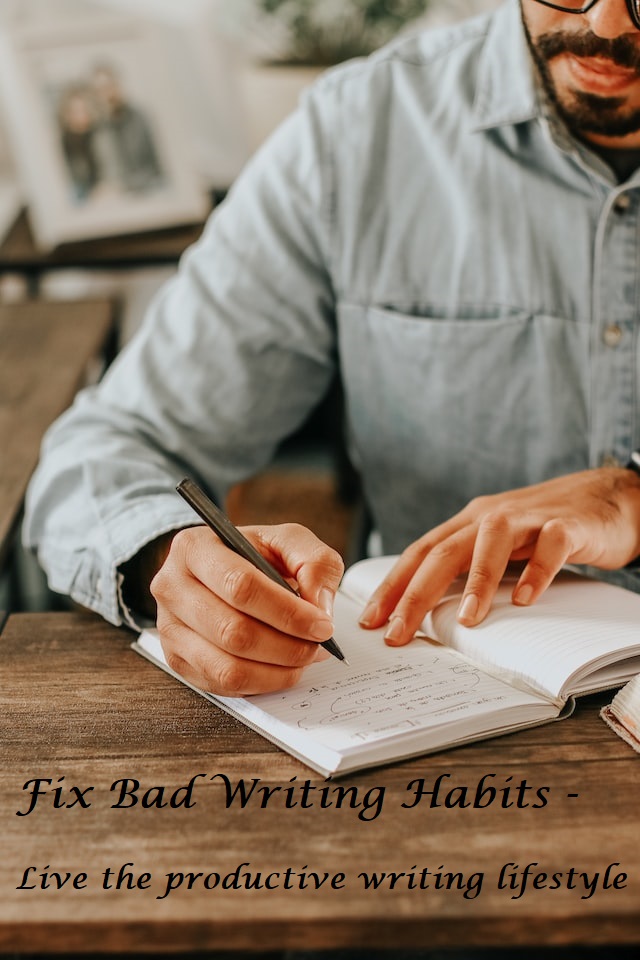Compassion for others is not something the average writer thinks about much. We are pretty much too wrapped up in our own heads with our writing and our inner critic. As writers our harshest and most destructive critic is the voice in our own heads. We are harsh to the point of total self destruction. That self-sabotage literally kills our ability to write, produce and thrive as writers. That is why learning to be compassionate with ourselves and others is such an important tool for a writer.
Our inner critic will stop our foul work (Its thoughts to be sure.) before we can inflict it upon the unsuspecting world. It will save us from ourselves by beating us up over our failures of the past. We should have a finished book by now. The last effort was terrible. The current work should be buried with a steak through its heart or burned before one of those rotten editors out there can publish it.
Compassion for others the easy way
If we could just blow that critic off, we would all be much better off when sitting down to write. The trouble is this voice rules the show because it is our mental compass of good and bad. We need it and use it for everything. That’s a problem when we are trying to create since the entire point of creation requires experimentation. When you experiment, you get a lot of wrong answers to find the right answers with the possibility of being wrong. You can ask Thomas Edison about his 10,000 wrong answers for a working light bulb. Aside from blind luck, there is no shortcut here.
Another problem with the voice and our writing.
We do have a good use for our critic. It’s our editor for when we fix our rough draft. It tends to do a good job there, as long as we know when to just tell it to shut up and when to call the work done. If we don’t limit it, we will never get started or will edit our work forever. This is probably the biggest reason for having another person read and edit our work.
Once past the final edit even, the voice can strike with vicious attacks to prevent us from shipping off the final manuscript to the publisher or printers.
The critic aims to help
From our inner voice’s view, it is protecting us from evil. It prevents us from feeling this pain we fear so.
At the same moment, this part of us sees the same kind of suffering in others and knows to give them better and wiser critiques of their efforts than we do ourselves. No one would ever say the same kinds of vile comments to others we use on ourselves. It’s human nature to try to be kind, at least kinder than we are to our selves.
We would never look at another person’s work and ask questions like “Well, now how droll is that? This is totally rubbish? Maybe you should just give up?” We try to be constructive with our criticism. We don’t speak to others like that. Why ourselves?
I’ll be blunt.
It’s not alright to speak to ourselves like that. The solution is becoming self aware of what we say to ourselves and then catch the slips. Change the narrative. Think how you would phrase your remarks about the same work to someone else. Then show that same compassion to yourself.
“This is not as good as it can be. That’s OK. This is still a rough draft. It’s not supposed to be perfect yet. I give you permission to really mess this up. Throw lots of spaghetti at the wall. We can clean it up and see what sticks later.”
The key here is to know how to treat another writer, or other struggling artist, is your road map to treating yourself better and finishing your work.
So why compassion for others?
We need compassion for others for many reasons, but as writers, I think we can use how we treat others to start to learn how to really treat ourselves. When we start working to improve how we react more compassionately with others, we find how to be more compassionate to ourselves. We heal ourselves by healing others.
We need to have compassion for others as we write because we can be very demanding and even harsh with our work. Have you ever just complained aloud about how loud someone was being while you were trying to write? How about holding off getting to your pages because other people would bother you, which you of course let out of the bag as a means to get them to leave you alone?
Sure we need to guard our work time, but compassion for others will keep you from ruining your relationships to do it. That understanding of others also means you will be better able to understand yourself. The stuff works the same way the other way round as well. We learn to treat others better by treating ourselves better.
The compassionate way we go about things.
Are we being respectful as we make our demands? Are we polite? Do we really need to become a Shakespearean actor to explain our angst?
How we act is key to being compassionate. We cannot act like we are the center of the universe, or that the target in question be it someone else or ourselves is of little value.
When we talk about compassion and being compassionate we are really talking about understanding the persons involved and convincing them to help us.
Stalling the start
“Drink deep the gathering gloom. Watch lights fade from every room….” I wonder if the Moody Blues were talking to me when I am falling deep into procrastination mode. It certainly fits the mode we get into when we are avoiding our work at all costs.
It is when we are deep in this default behavior that we need self-compassion the most. I have been fortunate to learn a few tricks to motivate a little forward momentum.
Fierce compassion for you
Kristin Neff, Ph.D. argues in Why Women Need Fierce Self-Compassion for us to practice fierce self-compassion. She has three core components for self-compassion. One is a yin and yan based. Neff says, “Yin self-compassion is a loving, connected presence that we can tap into to replace self-judgment with self-acceptance. Yang self-compassion shows up as fierce, empowered truth that allows us to actively cope with life’s challenges.”
Familiar?
Have you ever slid into judgement mode because of decreasing productivity without giving yourself some breathing space to ask yourself why you are procrastinating? Asking yourself questions us to get to the root of the obstacle.
Why was I tempted to write little or totally skip today?
How did my body feel because of it?
Did I journal about why I could not focus on my project?
Those are just a few places to start pulling back the curtain for a clearer view of our mental, emotional, and physical standing. We want to find what is preventing us from writing progress. Writing out, looking at then sitting with those answers is a radical act.
Change the work
I have also found that writing something else is quite helpful. There are some options here. Write about what you are grateful for, a positive reflection, some new ideas, possible future goals, etc… write anything positive and preferably aimed to break through the block.
Compassionate Positive journaling
You can even reframe the procrastination from a positive angle. Take a moment to remember how many times you have worked past your inner critic and his arsenal of fear, self-doubt, worry and so on.
Mantras
Use a mantra. Some of the ones I like “I just need to hit my minimum for the day.” “Crappy is better than nothing.” “I can edit crappy. Nothing means I got nothing.”
Compassion Sets a Low Bar
I use mantras in conjunction with a low bar for the minimum. Sometimes it is just get a few words written, to be precise Five. Yes, five words and if I cannot keep going, I can call it a day. I am done. I have beaten the block and can come back to tomorrow for the win. Setting the vastly shorter minimum fall back standards allows me to pull out when things are just not clicking with a win.
Time
Other times I work with a minimum of time. I like to kick it for at least five minutes. If after five minutes nothing is flying on to the page or I am not in a good flow, I can call it time for a break. I often couple this one with the Pomodoro method for productivity.
I set the timer for 25 minutes. When the time goes off, as long as I have some words on the page, I can quit. I like to keep this stuff flexible so I can use what works. Most of the time I type for 25 minutes, and take a small break. Then I can come back and get another 25 in.
Creating smart habits is key to being kind to ourselves. No one is Superman, but we are pretty great when we give ourselves the compassion we need to perform our best.
Tune up with morning pages
Clearing my mental decks before I set out on the day seems to help prime myself before I get sucked into the negative thinking trap. Even on days when I am stalling a lot, I get words down. Words down is always a win. When really stuck another tool I use is to just mind dump.
It’s similar to the other two tools, but in this case you pull up a blank page and let fly with everything you are thinking about the work or thinking in general. Five minutes of this can give your brain a small break. It can also allow you to vent your evil voice’s spleen. Once written the words lose their power over you. Just knowledge your negative thoughts is magic that allows you tp see the work better.
Three steps to compassion for yourself in the rough draft:
1. Compassion allows messes.
Be messy. You are experimenting. Don’t try to figure out what the end product is. Let the process tell you. Sure you will bounce. That’s good. You might find something you had not considered.
2. Compassion stays open to the possible.
Sure the final draft will need some tough calls. This is the time of the muse. You need to listen more than plot. This holds true if you are pantser or plotter. A good idea is always a good idea, even if you have a plan. Replacing a good idea with a better one is a win.
3. Compassion loves the mess.
Love your work. It does not matter if you don’t really like it or that it’s incomplete or that it lacks polish. Loving the work allows you to enjoy the work. When we enjoy the work, we write better.
My take on compassion
Writers grow with a little compassion as we master the writer’s path. Give some and get some.
Photo by Gary Yost on Unsplash










